Best Lebanese documentary movies
A curated collection of popular documentary movies from Lebanon.
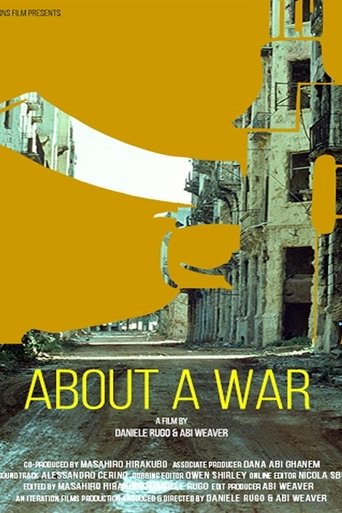
About a War (2019)
About a War (2019)
A feature length documentary exploring violence and social change through the stories of ex-fighters from the Lebanese Civil War.
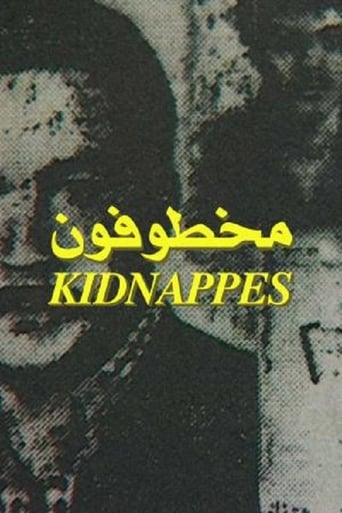
Kidnapped (1998)
Kidnapped (1998)
“Al Makhtufun” won the 1998 Best Short Documentary Film Award at the Mediterranean Film Festival for highlighting the issue of abducted Lebanese. The film raises two major issues: The abductee’s physical absence and his spiritual presence among his family members, and the parents silently wishing his return. The documentary looks at documents kept by Wadad, a mother who decides to step outside her comfort zone and share her papers and forms when other parents would not.
War on War (1983)
War on War (1983)
The camera wanders through streets standing witness to a war that has destroyed a city and an entire nation. Bagdadi goes to war against the Lebanese civil war, exploring different locations and situations in a country faced with its own demise. The poetic text raises questions of life and death through contrasting images of violent death and the will to live.

The Urgent Call of Palestine (1973)
The Urgent Call of Palestine (1973)
Ismail Shammout, an artist who is primarily known for his paintings, also served as director of the Cultural Arts Section of the PLO and worked with the organization’s Film Unit in the 1970s. In this short film, Shammout records a solidarity song by the Palestinian Egyptian singer Zeinab Shaath to announce the most urgent call of Palestine. The song and the words of Kamal Nasser that break through the ballad continue to hold striking relevance today. Lyrics by Lalitha Punjabi.
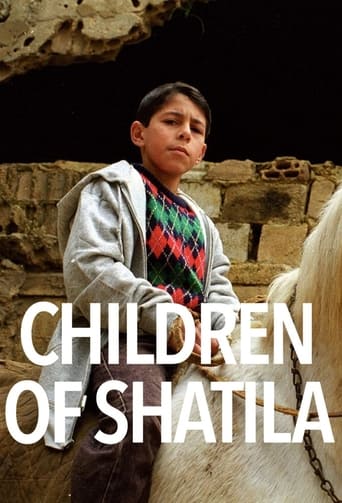
Children of Shatila (1998)
Children of Shatila (1998)
Many people first became aware of the Shatila refugee camp in Lebanon after the shocking and horrific Sabra-Shatila massacre that took place there in 1982. Located in Beirut's "belt of misery," the camp is home to 15,000 Palestinians and Lebanese who share a common experience of displacement, unemployment and poverty. Fifty years after the exile of their grandparents from Palestine, the children of Shatila attempt to come to terms with the reality of being refugees in a camp that has survived massacre, siege and starvation. Director Mai Masri focuses on two Palestinian children in the camp: Farah, age 11 and Issa, age 12. When these children are given video cameras, the story of the camp evolves from their personal narratives as they articulate the feelings and hopes of their generation.
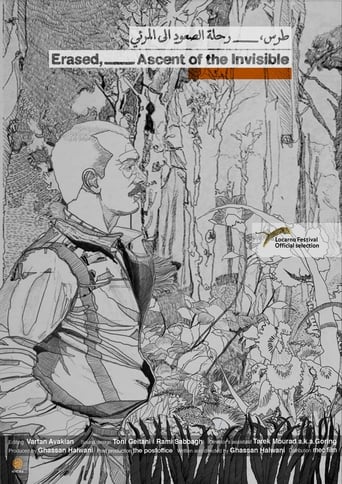
Erased,___Ascent of the Invisible (2018)
Erased,___Ascent of the Invisible (2018)
"Thirty-five years ago, I witnessed the kidnapping of a man I knew. He has disappeared since. Ten years ago, I caught a glimpse of his face while walking in the street, but I wasn’t sure it was him. Parts of his face were torn off, but his features had remained unchanged since the incident. Yet something was different, as if he wasn’t the same man” (Ghassan Halwani).
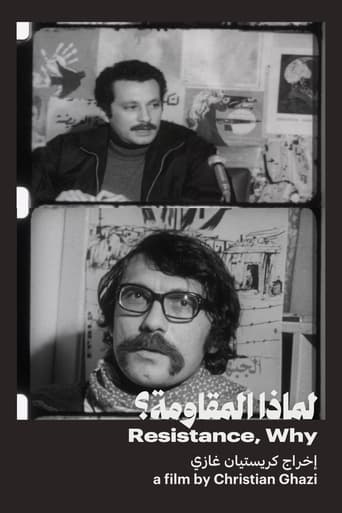
Resistance, Why? (1971)
Resistance, Why? (1971)
In 1970, Christian Ghazi and Noureddine Chatti met with a number of Arab political figures, especially Palestinians residing in Lebanon, resulting in this piece of armed (alternative or third) cinema that captures a crucial cross-section of the Palestinian resistance in Lebanon in 1970. The film features footage of Ghassan Kanafani, Sadiq Jalal El-Azm, Nabil Shaath and other personalities who share their vision of the Palestinian revolution, tracing its history back to the early 20th century. These testimonies describe the numerous strikes and popular protests that took place in Palestine under the Ottoman occupation, followed by the British colonization and the settlement of the Jewish state in 1948. They enumerate the objectives of the struggle, emphasising the necessity for a free and democratic Palestine, defended through armed or non-armed struggle by all its citizens, men and women of various affiliations.

Leila and the Wolves (1984)
Leila and the Wolves (1984)
Drawing on the Arab heritage of oral tradition and mosaic pattern, Leila and the Wolves is an exploration of the collective memory of Arab women and their hidden role in history throughout the past half century both in Palestine and in Lebanon.
Grandma, a Thousand Times (2011)
Grandma, a Thousand Times (2011)
Teta Kaabour is an 83-year old family matriarch and sharp-witted queen bee of an old Beiruti quarter. She’s been gripped as of late by the silence of her once-buzzing household where she raised children and grandchildren. Resigned to Argileh smoking and day-long coffee drinking on a now-empty balcony, Teta now invokes the deepest memories of her violinist husband who died twenty years ago. She claims a preparedness to re-unite with him.
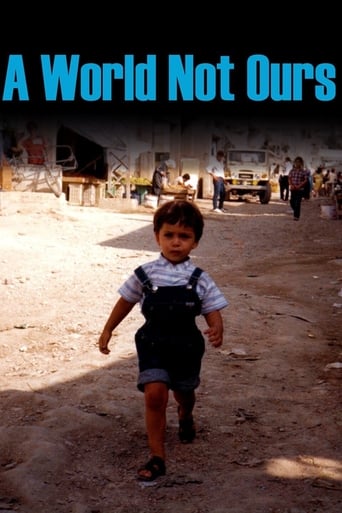
A World Not Ours (2014)
A World Not Ours (2014)
An intimate, and often humorous, portrait of three generations of exile in the refugee camp of Ein el-Helweh, in southern Lebanon. Based on a wealth of personal recordings, family archives, and historical footage, the film is a sensitive, and illuminating study of belonging, friendship, and family in the lives of those for whom dispossession is the norm, and yearning their daily lives.
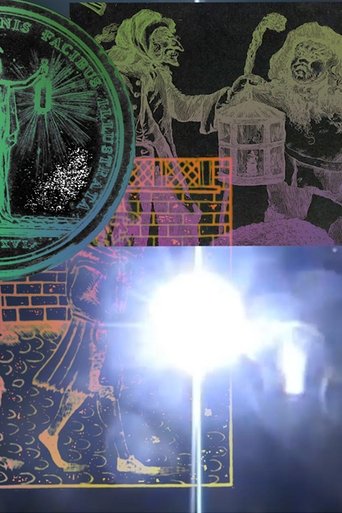
All of your Stars are but Dust on My Shoes (2021)
All of your Stars are but Dust on My Shoes (2021)
Kunsthal Charlottenborg and CPH:DOX present an exhibition with the French star artist Laure Prouvost, who will open the festival’s first day.
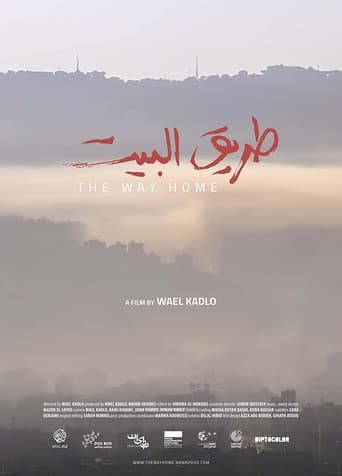
The Way Home (2018)
The Way Home (2018)
When filmmaker Wael Kadlo picks up his mother from the airport in Beirut, it seems like a rather warm family visit. But Kadlo, who was born in Damascus in 1980, has some questions he needs to ask her.
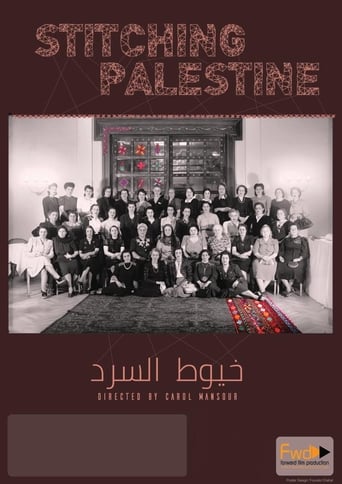
Stitching Palestine (2017)
Stitching Palestine (2017)
Twelve Palestinian women sit before us and talk of their life before the Diaspora, of their memories, of their lives and of their identity. Their narratives are connected by the enduring thread of the ancient art of embroidery. Twelve resilient, determined and articulate women from disparate walks of life: lawyers, artists, housewives, activists, architects, and politicians stitch together the story of their homeland, of their dispossession, and of their unwavering determination that justice will prevail. Through their stories, the individual weaves into the collective, yet remaining distinctly personal. Twelve women, twelve life-spans, and stories from Palestine; a land whose position was fixed on the map of the world, but is now embroidered on its face.

As Above So Below (2020)
As Above So Below (2020)
This hushed, pared-down essay weaves together different facts and myths surrounding the moon: images, texts, and sounds are spun into a dense, delicate tissue of ideas, with humans both at the centre and infinitely small in this celestial context.
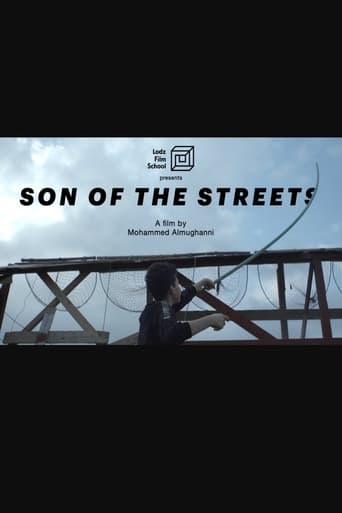
Son of the Streets (2020)
Son of the Streets (2020)
13-year-old Khodor is a child whose family tries to issue him an ID document that proves his existence and gives him the right to education, health-care and movement outside of the Palestinian refugee camp of Shatila in Beirut, Lebanon. Through the process, many of the family's old secrets are revealed.
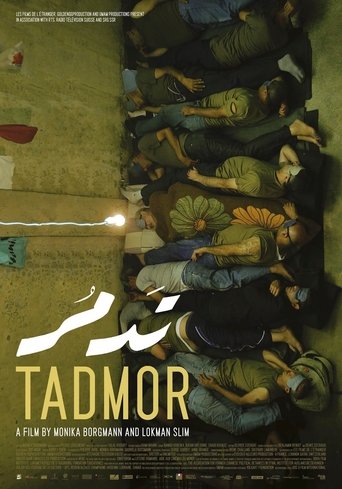
Tadmor (2017)
Tadmor (2017)
Amidst the popular uprising against the Syrian regime that began in 2011, a group of former Lebanese detainees decides to break their long-held silence about the horrific years they spent imprisoned in Tadmor (Palmyra), one of the Assad regime's most dreadful prisons. They decide to testify publicly about the systematic torture and humiliation they experienced. To reclaim and overcome this dark chapter in their lives, they rebuild Tadmor in an abandoned school near Beirut. By playing the role of both "victim" and "victimizer," they will relive their survival.
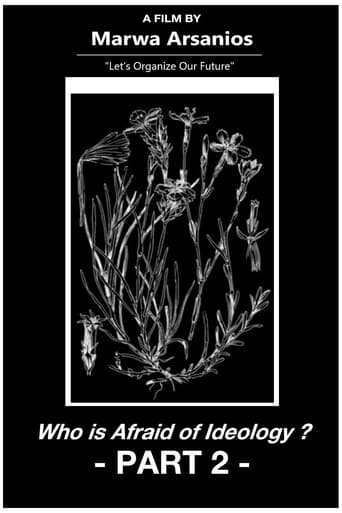
Who Is Afraid of Ideology? Part 2 (2019)
Who Is Afraid of Ideology? Part 2 (2019)
A generous and lyrical continuation of Lebanese artist Marwa Arsanios’ interest in the ties between ecology, feminism, and collective organization, this documentary showcases the radical politics of a Lebanese farming cooperative and the citizens of Jinwar, a women-only village in the north of Syria.
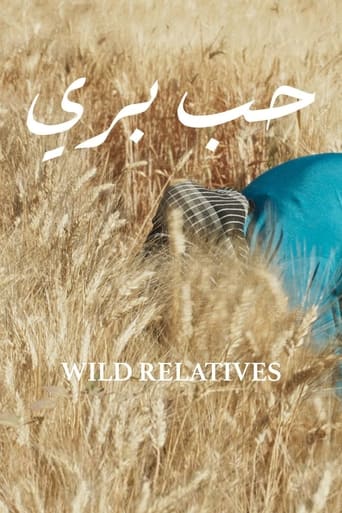
Wild Relatives (2018)
Wild Relatives (2018)
Deep in the earth beneath the Norwegian permafrost, seeds from all over the world are stored in the Global Seed Vault to provide a backup should disaster strike. For the first time ever, seeds held there from a major gene bank in Aleppo are now being replicated, after its holdings were left behind when the institution had to move to Lebanon due to the civil war. It is refugees from Syria who are carrying out this painstaking work in the fields of the Beqaa Valley. In the Levant, dry conditions and the power of global agricultural corporations are the biggest challenge, while in the Arctic Circle - where the seed vault was supposed to withstand anything - it is rising temperatures and melting glaciers.

The Story of a Village and a War (1979)
The Story of a Village and a War (1979)
"The Story of a Village and a War" is a film about the citizens of South Lebanon during the israeli invasion in 1978. The film highlights their daily suffering during the occupation. It was shown at the United Nations at the request of Ghassan Tueini, the representative of Lebanon back then. The screening helped in the issuance of resolution 425, which provided for the withdrawal of the israeli occupation from the South.
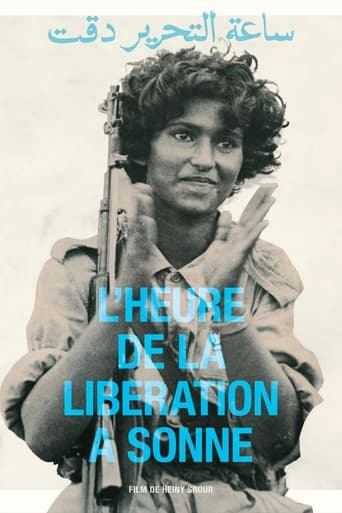
The Hour of Liberation Has Arrived (1974)
The Hour of Liberation Has Arrived (1974)
In the late 1960s, Dhofar rose up against the British-backed Sultanate of Oman, in a democratic, Leninist guerrilla movement. Director Heiny Srour and her team crossed 500 miles of desert and mountains by foot, under bombardment by the British Royal Air Force, to reach the conflict zone and capture this rare record of a now mostly-forgotten war.
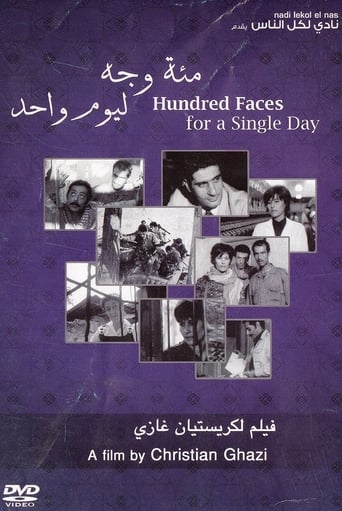
Hundred Faces for a Single Day (1972)
Hundred Faces for a Single Day (1972)
Rejecting all propagandistic or narrative convention, Ghazi combined documentary and abstract sequences with a series of discontinuous plot lines to organize a stinging attack on the bourgeois decadence of Beirut's political milieu.
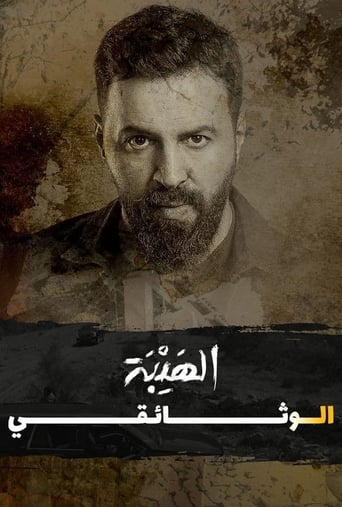
Al Hayba: The Documentary (2022)
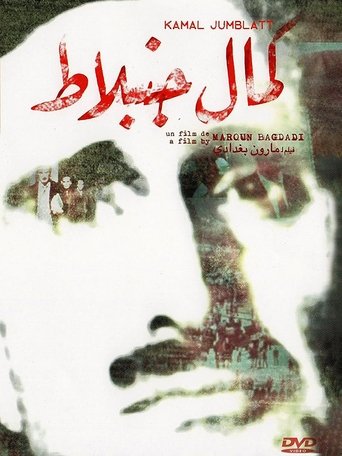
Greetings to Kamal Jumblatt (1977)
Greetings to Kamal Jumblatt (1977)
Tribute to the Druze Kamal Jumblatt, Minister of Economy and Agriculture (1946) and founder of the Progressive Socialist Party (PSP) in 1949. He was one of the architects of the departure of President Bechara el-Khoury (1952), before playing a major role in the events of 1958. From 1960 to 1964, Kamal Jumblatt assumed, under the presidency of Fouad Chehab, various ministerial functions . . After the conflict of June 1967, he gradually approached the Palestinian organizations. In 1969 he became Minister of the Interior; in August 1970, he supported the election of Soleiman Frangié as President of the Republic. Following the Lebanese-Palestinian clashes of May 1973, he took sides against the head of state, established himself as the leader of the National Movement in 1975 and engaged in a revolutionary armed struggle against the Lebanese Front. Hostile to Syria's intervention in Lebanon, he broke with it (March 1976). He was assassinated near a Syrian checkpoint in 1977.
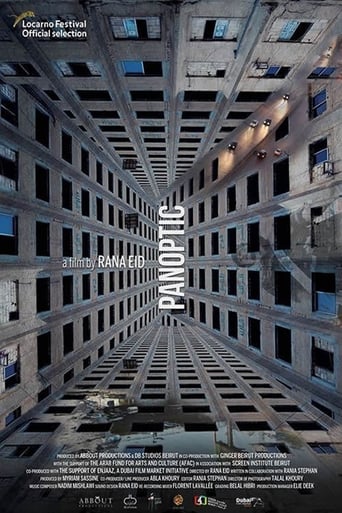
Panoptic (2017)
Panoptic (2017)
Panoptic explores Lebanon's schizophrenia. Depicting a nation thriving for modernity while ignoring the vices preventing it from achieving its goal, director Rana Eid examines this paradox through sound, iconic monuments and secret hideouts.
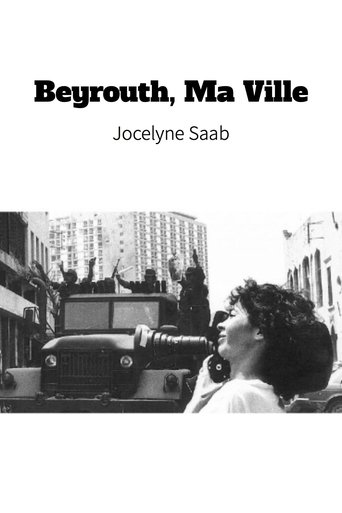
Beirut, My City (1983)
Beirut, My City (1983)
In July 1982, the Israeli army besieged Beirut. Four days earlier, Jocelyne Saab sees her house burn and 150 years of family existence go up in smoke. She then takes refuge in questioning: when did this all begin? How did the Beirut people live the siege? Each place will then become a story and each name a memory.
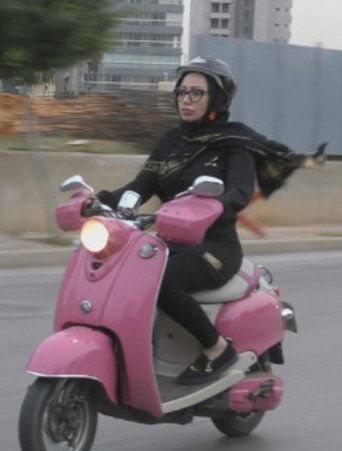
Zeinab on the Scooter (2020)
Zeinab on the Scooter (2020)
Zeinab, 23, is a rebellious Muslim Shi’a woman who works in an association that grants micro-credit loans to people in precarious financial circumstances in the popular areas of Beirut. Each month, Zeinab is evaluated on the number of micro-credit contracts approved. For the need of her work, Zeinab browses the city aboard a grey scooter that will become pink, defying her male colleagues who, because they adopted the scooter as mode of transportation, realize higher turnover than girls.
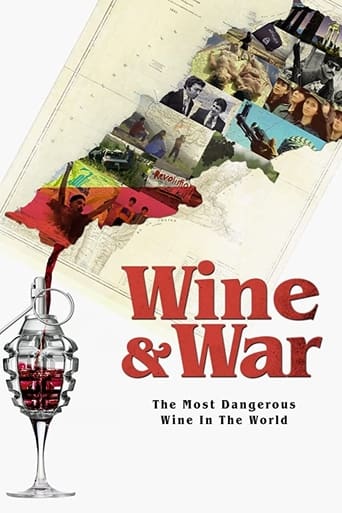
Wine and War (2020)
Wine and War (2020)
WINE and WAR is a documentary about one of the the oldest winemaking regions on earth and the resilience of the Lebanese entrepreneurial spirit seen through the lens of war and instability.
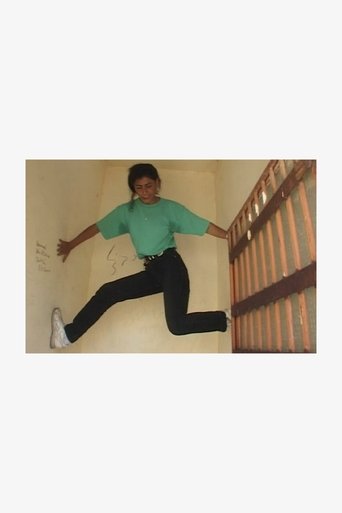
Souha, Surviving Hell (2001)
Souha, Surviving Hell (2001)
The film follows Souha Béchara’s return to her village, Deir Mimas, to the Khiam jail, in the very place where she tried to assassinate General Lahd. For Souha, surviving hell is a joyful, thoughtful, and liberating travel diary. The diary of a trip that, for a moment, let one believe in the possible reconciliation of
My Life in the Congo (2001)
My Life in the Congo (2001)
Between 1880 and 1960, hundreds of Luxembourgers went to settle in the Belgian Congo to live and work there; some for some time, others for ever. The film tells their story and their experiences.
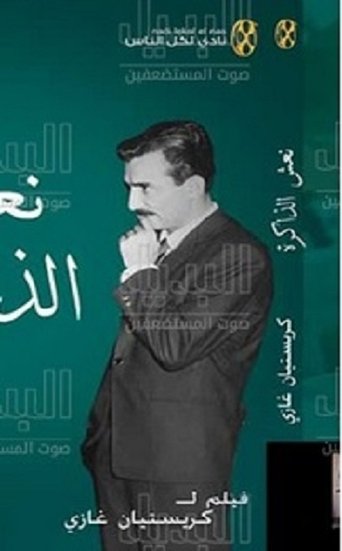
Coffin of the Memory (2001)
Coffin of the Memory (2001)
After an interruption of thirty years. Christian Ghazi resumes his cinematographic work with the documentary "Coffin of the Memory". The film mixes newly shot interviews with archive images. In the interviews it sheds light on two basic issues, solitude and economic situation. Through images and simple daily situations, Christian Ghazi draws a portrait of the Lebanese society, a society drowning in its contradictions and its search for an empty individualism and the superficiality of daily consumption, that of production, ideas, time and space.